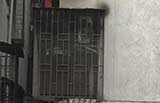Tougher penalties mapped out to fight illegal surveys
By Wang Qian (China Daily) Updated: 2012-10-23 01:22Amendment to focus on foreigners gathering sensitive information
Foreigners carrying out illegal surveys, mapping without permission or marking the location of key facilities without authorization, will face tougher penalties amid measures to enhance security of strategic areas.
Tackling these activities, and the requisite punishment, is under discussion as authorities draft amendments to the National Surveying and Mapping Law.
According to the State Administration of Surveying, Mapping and Geo-information, the amendments have been included in the State Council's work agenda for 2012.
Li Weibing, deputy director of legislation and industry management for the administration, said that he hopes the draft will be finished this year and the law will be implemented by 2017.
Almost 40 illegal surveying and mapping cases were detected between 2006 and 2011, mostly in border areas such as the Xinjiang Uygur autonomous region, the administration said.
"Coordinates, topography and information regarding key areas and core facilities are top secret," Li said. "Once acquired by another country the information could be used to attack targets in wartime."
Li said the draft would consider criminal liability in cases where illegal surveys were carried out and endangered Chinese citizens.
The current law states that any foreign individual conducting an illegal survey will be deported and face a maximum fine of 500,000 yuan ($78,900).
In 2010, Beijing No 1 Intermediate People's Court sentenced Xue Feng, a geologist from the US, to eight years in prison and fined him 200,000 yuan for trying to buy data about the Chinese oil industry. He was charged with attempting to obtain and traffic State secrets.
The sentence showed the country's determination, legal experts said.
Li Qinggong, deputy secretary-general of the China Council for National Security Policy Studies, said that foreigners, or Chinese people conducting illegal surveys, should face heavy penalties.
The State Administration of Surveying, Mapping and Geo-information said most of the foreigners found guilty of carrying out illegal surveys were Japanese or US citizens and border regions were their top targets.
From 2005 to 2011, 10 cases of illegal surveying by foreigners, or involving a foreign element, were investigated in Xinjiang, China Network Television, an online broadcaster run by China Central Television, reported in May.
In the latest case released by the administration, a US citizen was found using two global positioning system receivers in August last year to record more than 90,000 coordinates near a military base in Xinjiang.
Ye Yinhu, director of legislation and industry management for the State Administration of Surveying, Mapping and Geo-information, told China Network Television that the US citizen arrived in Xinjiang from Beijing on the premise of registering a travel agency to offer outdoor tours to foreigners in Urumqi, Xinjiang's capital, and other places in the region.
The two receivers were for professional surveying and mapping activities and he was fined 20,000 yuan, while the Xinjiang Surveying and Mapping Department confiscated his equipment and data, he added.
In February 2010, a Japanese citizen illegally recorded 598 coordinates, including those of a military site in Xinjiang.
Because Xinjiang neighbors eight countries, the most for any Chinese region, and is rich in resources, it attracts attention, said Li, at the China Council for National Security Policy Studies.
He added some overseas organizations had taken advantage of the eagerness of local governments to attract foreign investment and directly asked for geographic details. Others, he said, used the cover of setting up joint ventures and cooperative projects.
"As surveying technology develops, illegal activities are becoming harder to detect as equipment gets smaller," the administration's Li said.
Contact the writer at wangqian@chinadaily.com.cn
- Xi urges stronger PLA
- Charities rebuild image through relief efforts
- Self-testing to boost HIV battle
- Study finds plummeting levels of physical activity among Chinese adults
- School not at fault, its principal insists
- Xi says advice from netizens welcome
- China to help more rural migrants settle in cities
- Expert says big quake unlikely to hit nation soon
- Habit of reading in China expands with mobile tech
- Pollution poses threat to cities' water








